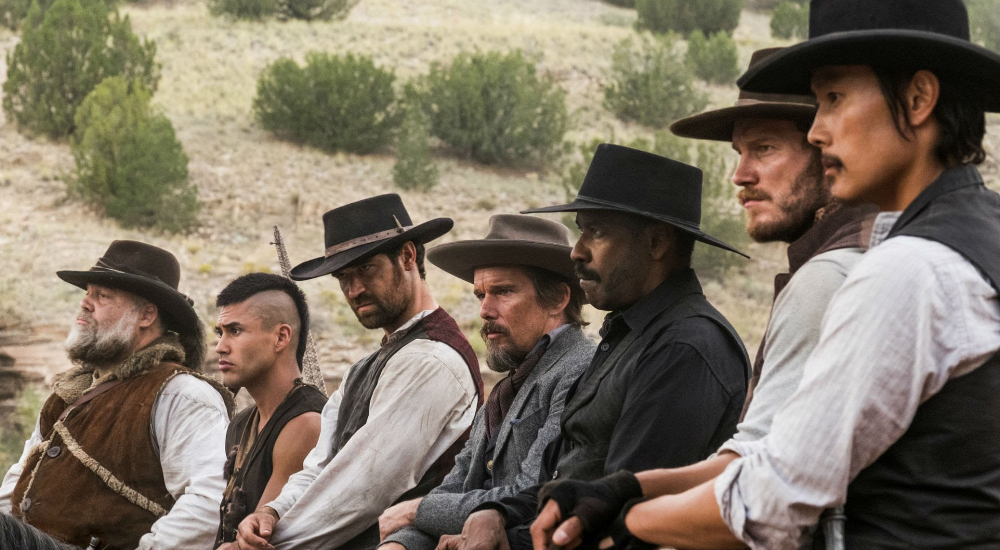“You gotta hate what you’re firin’ at.”
If remaking one classic western is tough, imagine attempting to do two at the same time. It’s damn near impossible. Just ask Antone Fuqua, whose sluggish retelling of the story that originated from John Sturges’ The Magnificent Seven, which in turn was derived from Kurosawa’s Seven Samurai, is the perfect example of why some classics are better left alone.
Lacking any formidable soul, Fuqua attempts to recapture the beauty of the source material, ultimately failing to understand the fun and humanity, offering up a generic genre film, complete with lavishly choreographed gun battles, campy one-liners and a body count that would make Eastwood sit up and take notice.
The premise, for those who have not been fortunate enough to catch either of the two previous films, centers on Bartholomew Bogue, a capitalist villain who announces himself to one and all by storming into a church meeting and informing everyone that they’re “standing in the way of God”, before killing several of those in attendance and setting fire to the place. Promising to return in three weeks for the land that the town rests on, he departs Rose Creek with a smirk, pleased with his actions and confident of his future success.
Played with unforgettable malice by Peter Sarsgaard, Bogue is the man that the Seven must ban together to stop. Denzel Washington’s Sam Chisolm, a bounty hunter who never takes his eye off his target, proves to be the group’s leader, with gun-slingin’ Josh Faraday (Chris Pratt) and war veteran Goodnight Robicheaux (Ethan Hawke) serving co-pilot duties as the group quickly assembles through a series of somewhat rushed vignettes.
The film’s seven center subjects (eight if you wish to include Bennett’s Emma Cullen) offer up an impressive degree of diversity; even though Manuel Garcia-Rulfo’s outlaw, Byung-hun Lee’s assassin and Martin Sensmeier’s loner are defined more by their killing skills than their ethnicity or backstory - missing an ostrich egg sized opportunity to provide commentary on the prejudices that rule today’s headlines.
In fact, it is only Hawke’s “Angel of Death” that gets any serious backstory mention as he is battling a severe case of PTSD stemming from his time on the front lines of the Civil War. But that, in all its importance, is glossed over quickly for the sake of the action - or what is to be considered such. Even Vincent D’Onofrio’s Jack Horne, an impressive tracker with a good heart and even richer laugh, gets drowned in his surroundings - and this is a guy who stood out in Kubrick’s classic Full Metal Jacket.
As the film enters its third act and hits is presumed climax, the gimmicks are fun to watch, but the bloodless bullet-flying battle is a bit lifeless. With no drive, no heartfelt connection and no established emotion, you find yourself unaffected by the outcome, even as Faraday walks up to Bogue with a cannon sized gun pointed at his face. I’m not saying the film isn’t good, it is fine. But in the grand scheme of things, it should have been better.
*This review was originally posted as part of our 2016 Toronto International Film Festival coverage.

